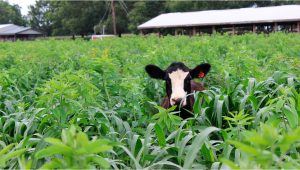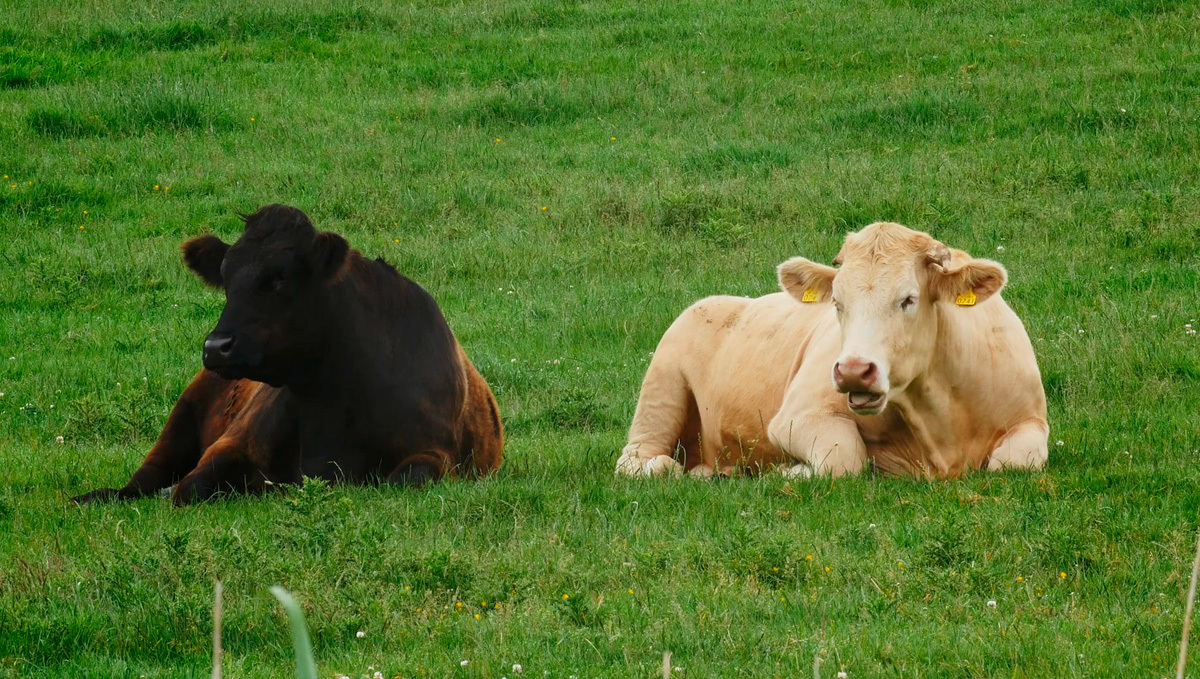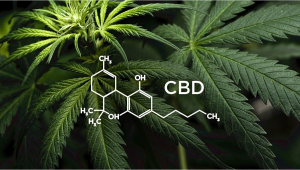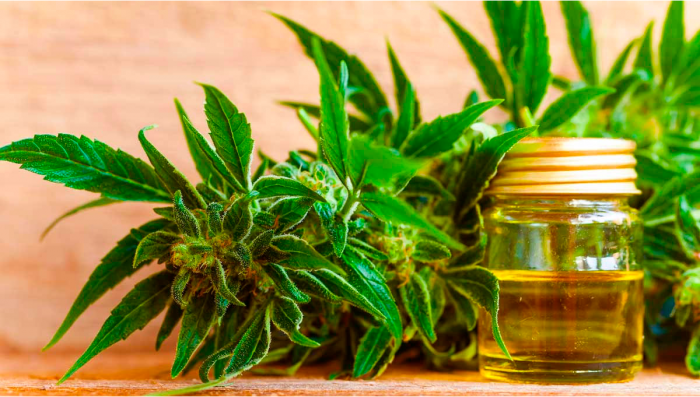CBD in Weed Makes Cows Chill And Happy, Study Finds

A team of scientists at the Kansas State University looked at how bovines react to cannabidiol in hemp and found improvements in their behavior and biochemistry. Cannabidiol, or CBD, is now legal in the US and Europe as well as many other countries of the world. It has become a popular wellness enhancement and is used both topically and in edibles by those living a healthy lifestyle.
Likewise, many pet owners report that their dogs and cats also react favorably to CBD chows. However, FDA hasn’t yet approved the substance for use in farming, and there’s scant research on the effects of CBD on livestock.
Giving ‘Grass-Fed’ a Totally New Meaning
For their study, Michael Kleinhenz and his KSU colleagues chose a small herd of Holstein steers and divided them into two groups: the hemp group and the control group. The 8 animals in the first group were receiving a small ration of hemp once a day. Hemp is the non-psychoactive cousin of cannabis (marijuana) and was legalized in the US by the 2018 Farm Act.
The cows received only 25 grams of chopped weed with their grain feed, but it was enough to produce significant changes for the better in their behavior. They were lying down more often and for longer periods of time than their opposite numbers in the control group. This is a clear sign of their being calmer and less stressed. The researchers also measured the levels of the “stress hormone”, cortisol, and their decrease was statistically significant.

Another substance that the team looked at was prostaglandin which is a biomarker of inflammation. Here the changes were even more pronounced. While the hemp-munching cows showed a prostaglandin reduction of 8.8%, there was a 10.2% increase among the controls. Raised stress levels in cattle, common during weaning or transportation, often lead to inflammations, especially in the airways.
Farm Waste Shouldn't Go to Waste
The principal active constituent of hemp is CBD-A which is a non-activated form of CBD. Probably, it was exactly this chemical that caused the beneficial effects in the study. It should be noted that the overall amounts of CBD-A were rather insignificant. It means that farmers could use hemp feeds with only trace amounts of this molecule and still get desired results.
Industrial hemp as well as some strains of medical marijuana rich in CBD are used for extraction, yielding only a small amount of the medicine while the rest is of little value and is mostly discarded. However, the plant material in hemp is rich in useful proteins and other nutrients and is easily digestible by livestock.
So cows can feed on the waste of the CBD extraction process the same as they eat grain that is the waste product of ethanol distilleries. The only thing that’s lacking is more research and the seal of approval by the FDA and the Association of American Feed Control Officials.











Comments